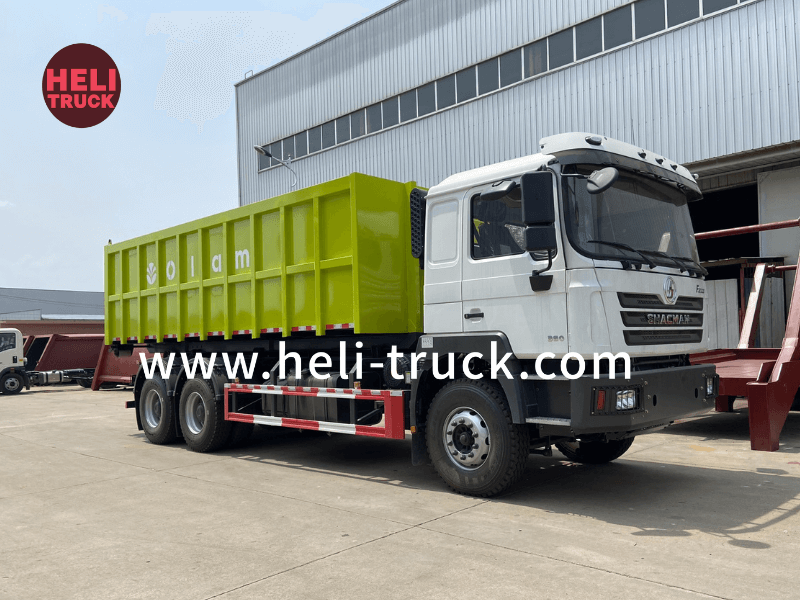Ensuring Safety in Garbage Compactor Trucks A Comprehensive Guide

Introduction
Garbage compactor trucks play a crucial role in waste management by collecting and compacting trash from residential, commercial, and industrial areas. These specialized vehicles help keep our communities clean and sanitary. However, operating a garbage compactor truck can be hazardous without proper safety precautions in place. In this comprehensive guide, we will explore the importance of safety measures in garbage compactor truck operations and provide detailed insights on how to ensure the safety of both operators and the public.
1. Understanding Garbage Compactor Trucks
Garbage compactor trucks, also known as waste collection vehicles or compactors, are specifically designed to collect and compact solid waste efficiently. work truck come in various sizes and configurations, ranging from small rear-loaders for residential areas to large front-loaders for commercial and industrial applications. The primary components of a typical garbage compactor truck include the compactor body, hydraulic system, compaction mechanism, and collection bin.
2. Common Hazards Associated with Garbage Compactor Trucks
Operating a garbage compactor truck presents several inherent risks and hazards that operators need to be aware of. Some of the common hazards associated with garbage compactor trucks include:
- Crush Injuries: The compaction mechanism in garbage trucks exerts immense pressure to compact the waste, posing a risk of crush injuries to operators who come into contact with moving parts.
- Falls: Operators working on top of the compactor body or climbing in and out of the truck can be at risk of falls, especially when the vehicle is in motion or parked on uneven terrain.
- Struck-by Accidents: Garbage compactor trucks operate in close proximity to pedestrians, cyclists, and other vehicles, increasing the risk of struck-by accidents if proper safety measures are not followed.
- Exposure to Hazardous Materials: Garbage trucks collect a wide range of waste materials, some of which may be hazardous or toxic, posing health risks to operators if not handled properly.
3. Essential Safety Measures for Garbage Compactor Truck Operators
To mitigate the risks and hazards associated with garbage compactor truck operations, it is essential to implement comprehensive safety measures. Here are some crucial safety guidelines for operators to follow:

- Proper Training: All garbage compactor truck operators should undergo thorough training on vehicle operation, safety procedures, and emergency protocols before being allowed to operate the vehicle independently.
- Personal Protective Equipment (PPE): Operators should wear appropriate PPE, including high-visibility vests, gloves, safety boots, and eye protection, to protect themselves from potential hazards while working.
- Safe Operating Procedures: Operators must adhere to safe operating procedures, such as not overloading the compactor body, securing the collection bin before transport, and following designated routes to minimize risks.
- Regular Maintenance: Garbage compactor trucks should undergo regular maintenance and inspection to ensure that all mechanical components are in good working condition and that any faults or defects are promptly addressed.
- Emergency Response Plans: Operators should be trained in emergency response protocols, including how to respond to accidents, spills, or other hazardous situations that may arise during operations.
4. Public Safety Considerations
In addition to ensuring the safety of operators, garbage compactor truck operations must also prioritize public safety. Here are some key considerations to keep in mind:
- Route Planning: Garbage trucks should follow designated routes and schedules to minimize disruptions to traffic flow and pedestrian movement. Operators should be vigilant while navigating residential neighborhoods, commercial areas, and industrial zones to avoid accidents.
- Communication: Clear communication with the public is essential to ensure that residents are aware of garbage collection schedules, any road closures or detours, and how to safely interact with garbage trucks in their vicinity.
- Vehicle Visibility: Garbage compactor trucks should be equipped with reflective markings, flashing lights, and audible warning devices to enhance visibility and alert pedestrians and other road users to the presence of the vehicle.
5. Technology and Innovation for Enhanced Safety
Advancements in technology have led to the development of innovative solutions to enhance the safety of garbage compactor truck operations. Some of the latest technologies that can improve safety include:
- Rear-view Cameras: Installing rear-view cameras on garbage trucks can improve visibility for operators, especially when reversing or maneuvering in tight spaces.
- Collision Avoidance Systems: These systems use sensors and cameras to detect potential obstacles or hazards in the vehicle's path and provide warnings to the operator to prevent collisions.
- Telematics and GPS Tracking: Telematics systems can monitor vehicle performance, driver behavior, and route efficiency, providing valuable data to improve safety, operational efficiency, and maintenance scheduling.
6. Regulatory Compliance and Best Practices
Compliance with regulatory requirements and industry best practices is essential for ensuring the safe operation of garbage compactor trucks. Operators and fleet managers should stay informed about relevant regulations, standards, and guidelines issued by regulatory authorities and industry organizations. Some key areas of regulatory compliance and best practices include:
- Occupational Safety and Health Administration (OSHA) Regulations: OSHA sets forth guidelines and standards for workplace safety, including those related to vehicle operations, personal protective equipment, and hazard communication.
- National Waste & Recycling Association (NWRA) Guidelines: The NWRA provides resources and best practices for waste management companies, including safety guidelines for garbage truck operations and waste collection procedures.
- Local Regulations: Operators should be familiar with local regulations governing waste collection, transportation, and disposal to ensure compliance with municipal requirements and environmental regulations.
Conclusion
Garbage compactor trucks play a vital role in keeping our communities clean and hygienic, but their operation comes with inherent risks that must be managed effectively. By implementing comprehensive safety measures, providing proper training to operators, prioritizing public safety, leveraging technology for enhanced safety, and ensuring regulatory compliance, we can minimize the risks associated with garbage compactor truck operations and create a safer working environment for all stakeholders involved. By promoting a culture of safety and vigilance, we can protect both operators and the public while maintaining efficient and sustainable waste management practices.
